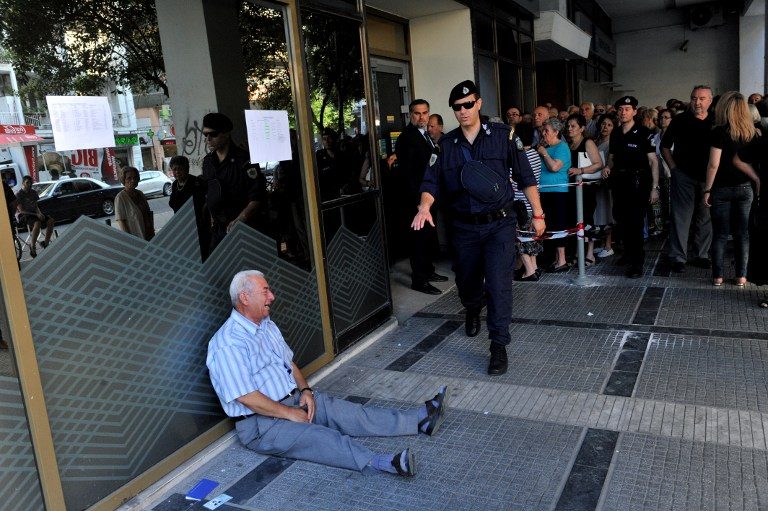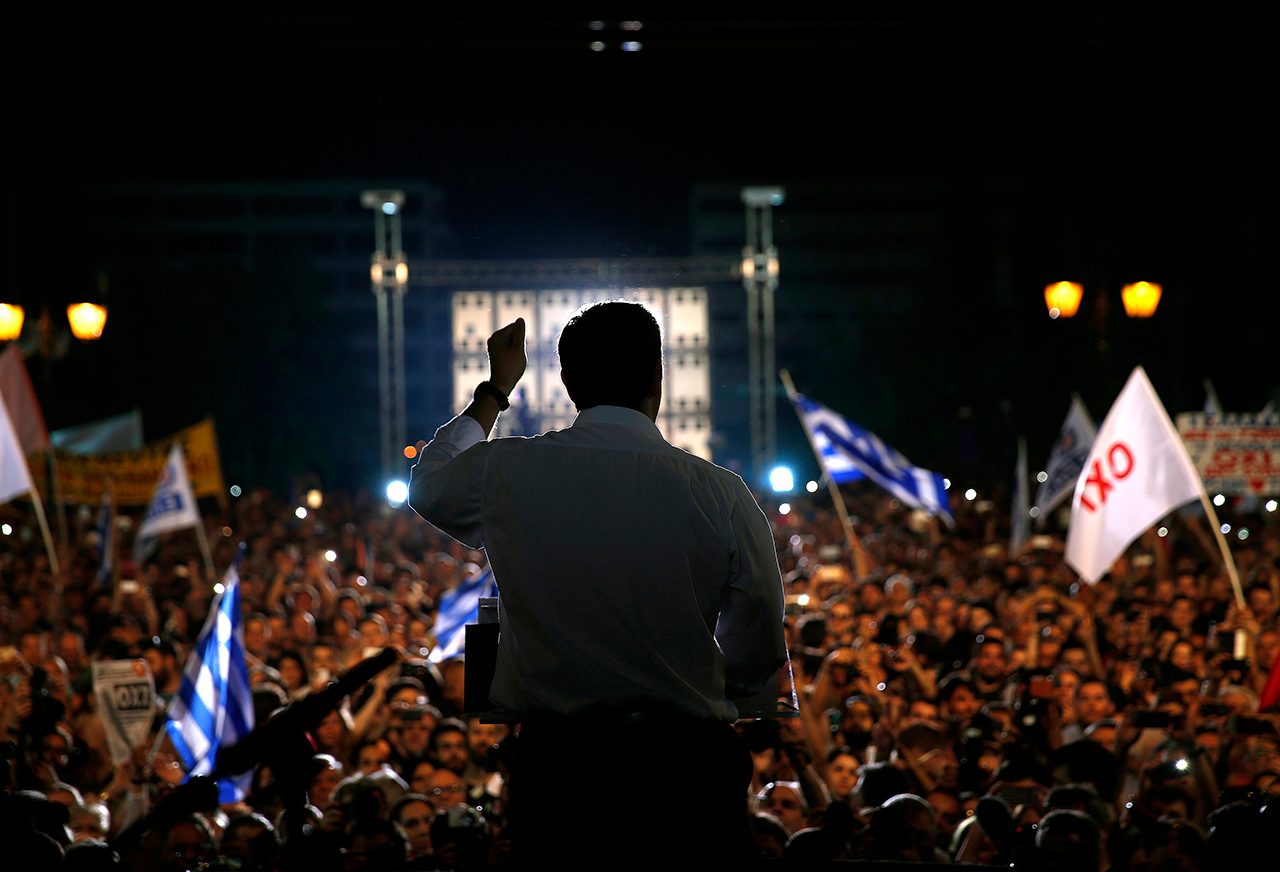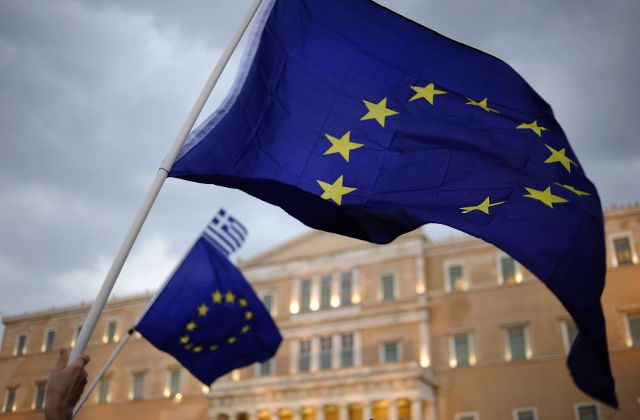SUMMARY
This is AI generated summarization, which may have errors. For context, always refer to the full article.

ATHENS, Greece – Greece hurtled Saturday, July 4, towards a crunch bailout referendum which could determine its financial future and even its place in the eurozone, as anxious families unnerved by the country’s uncertain outlook rushed to stock up on food.
On the eve of the vote that could also make or break the radical-left government, Greeks were spooked by rumors that capital controls were leading to food and medicine shortages, and questions were being raised on when the country’s banks would re-open.
Middle-aged toyshop assistant Marilena said she was buying “food, only food nothing else” for her children.
“I’ve heard shops are running out of flour, sugar and salt. I’m really worried, how will we manage if we can’t get to our money and there’s no food to buy?” Lena Antoniou, a 35-year old mother of two, told Agence France-Presse.
Nikos Archondis from the Panhellenic Exporters Association (PEA) told Agence France-Presse “certain supermarkets are very concerned because they cannot forecast how the situation will evolve,” adding that stocks of meat, cheeses, fruits and vegetables “risk running low in the following weeks”.
Many businesses said they had been forced to ask workers to take unpaid leave, some shops were refusing card payments in an effort to hoard cash and there were reports of companies paying workers in IOUs valid in local supermarkets.
‘Malicious rumor’

Greece’s debt crisis had taken a dramatic turn after Prime Minister Alexis Tsipras suddenly called the referendum on bailout conditions early last Saturday, June 27.
Tsipras’s gambit sparked consternation among his country’s international creditors, and led to the breaking off of talks on the rescue plan just days before the country was due to repay 1.5 billion euros to the IMF.
With nothing left in the state’s coffers, Greece defaulted on its IMF debt, and was forced on Monday, June 29, to impose capital controls and close banks to halt a hemorrhage of cash as nervous Greeks rushed to withdraw money.
Nevertheless, Tsipras got a rock-star welcome at a 25,000-strong rally in Athens late Friday, July 3, where he sought to revive support for the ‘No’ vote, saying it would strengthen his hand in talks with international creditors.
EU leaders have warned that a ‘No’ victory could cause Greece to crash out of the eurozone. But Tsipras and his closest ally Finance Minister Yanis Varoufakis have accused them of fear-mongering.
In an interview published Saturday the outspoken Varoufakis accused Athens’s creditors of “terrorism”.
As tensions rose he was forced to deny a Financial Times report that suggested Greek savers could lose 30 percent of their bank deposits to shore up the banking system, slamming it a “malicious rumor”.
A rival rally on Friday of 22,000 “Yes” supporters shouted pro-European slogans and voiced fears of a so-called “Grexit” from the eurozone and a return to Greece’s former currency, the drachma, if Tsipras got his way.
The latest voter intention polls, published late Friday, showed the nation of 11 million people was evenly divided.
A GPO poll put the ‘Yes’ voters at 44.1% and the ‘Nos’ at 43.7%, while an Alco survey found 44.5% would vote ‘Yes’ while 43.9% would vote ‘No’.
‘Amateurs’

Tsipras says the vote is needed to force creditors to finally accept his key demand of another round of debt relief to save Greece from financial meltdown and possibly crashing out of the euro.
But critics have complained the referendum’s very technical question is unintelligible, and that the bailout deal it asks voters to weigh expired on Tuesday, June 30.
European Commission chief Jean-Claude Juncker warned in Brussels that Greece’s negotiating position would be “dramatically weakened” in the event of a “No” – and still difficult even in the event of a “Yes” vote.
As the clock ticked down there was palpable exasperation among Greece’s eurozone partners, at least one of whom branded the government as “amateurs” asking for a blank cheque.
But there were also shows of solidarity, with anti-austerity rallies organized in Barcelona, Dublin, London and Lisbon.
In the Irish capital, hundreds of people marched to Greek music from the Irish Central Bank to parliament waving the blue and white-striped flag and chanting “Athens, Athens, we’re with you, we’re against the troika (creditors) too.”
In Madrid, Pablo Iglesias – the head of Syriza’s Spanish ally Podemos – echoed their cry, saying a ‘No’ vote “will bring us closer to the restoration of democracy in Europe”.
The high stakes in Sunday’s (July 5) knife-edge referendum prompted some Greeks living abroad to return home to cast their votes.
At Athens airport on the eve of the plebiscite, Kostas Kokkinos, a 60-year-old Greek living in Cyprus, told Agence France-Presse he flew in especially to tick the ‘Yes’ box.
Thanasis Hadzilacos, a professor in his late 60s also living in Cyprus, said he had brought his summer vacation forward for the plebiscite and was leaning towards a ‘No’.
But he added: “I don’t think either result will make much difference anyway, especially as it is so close.” – Ella Ide, AFP / Rappler.com
Add a comment
How does this make you feel?
There are no comments yet. Add your comment to start the conversation.